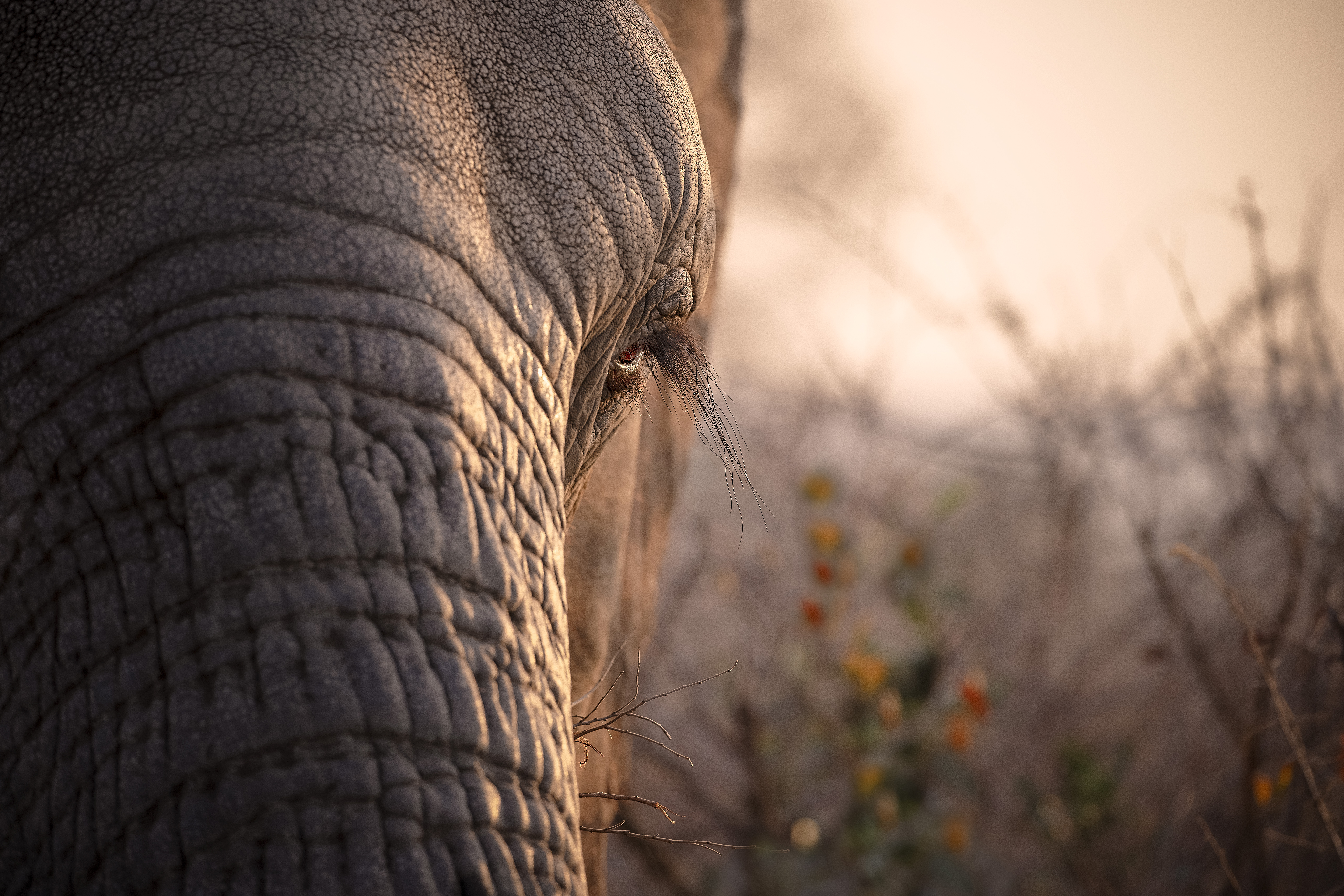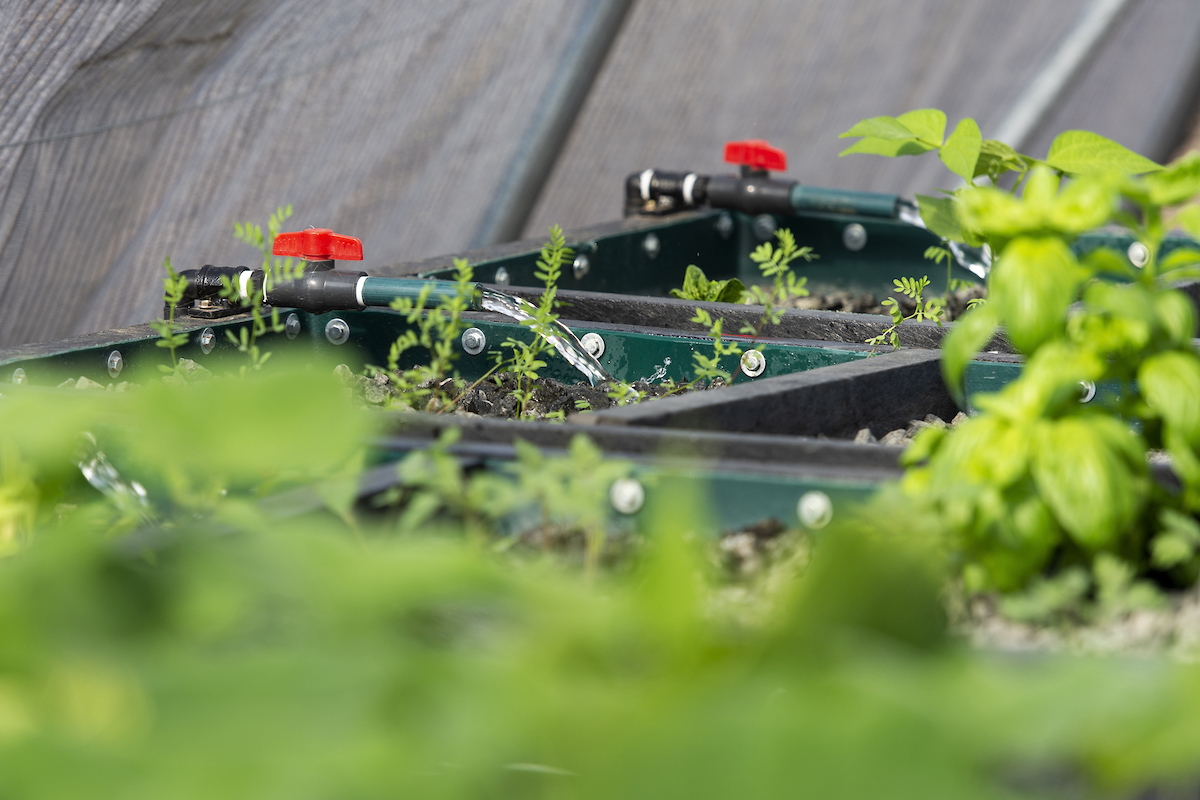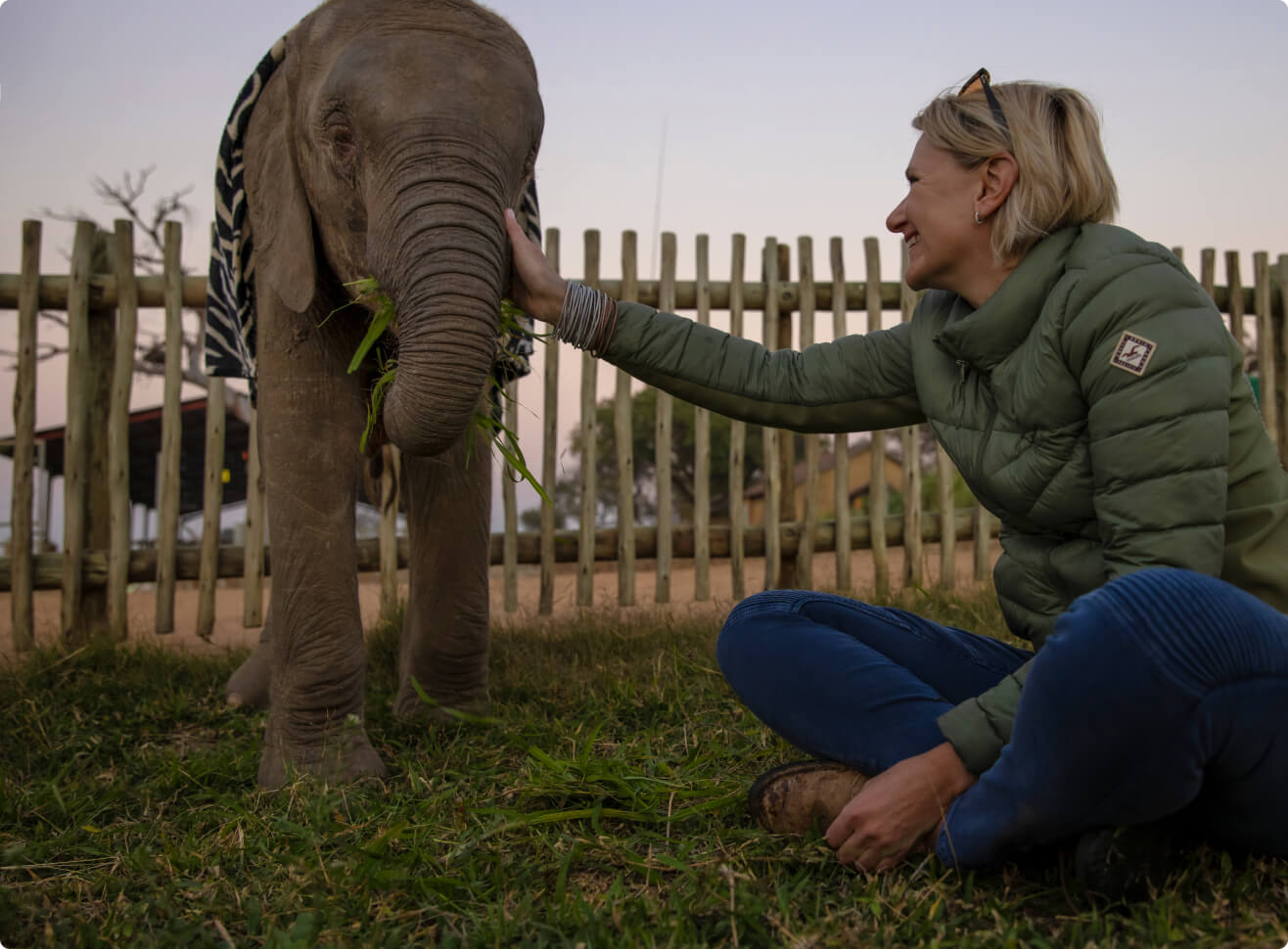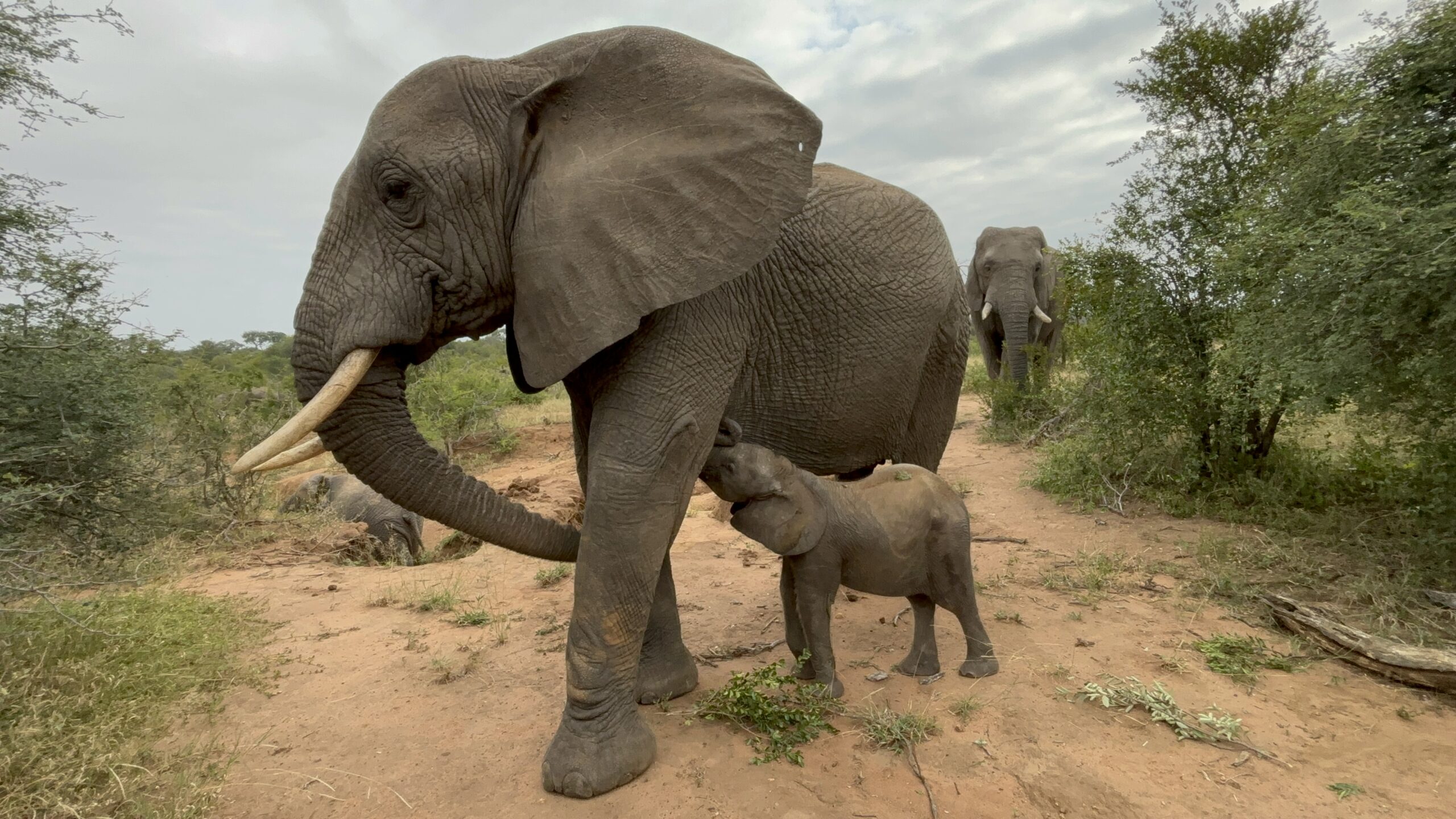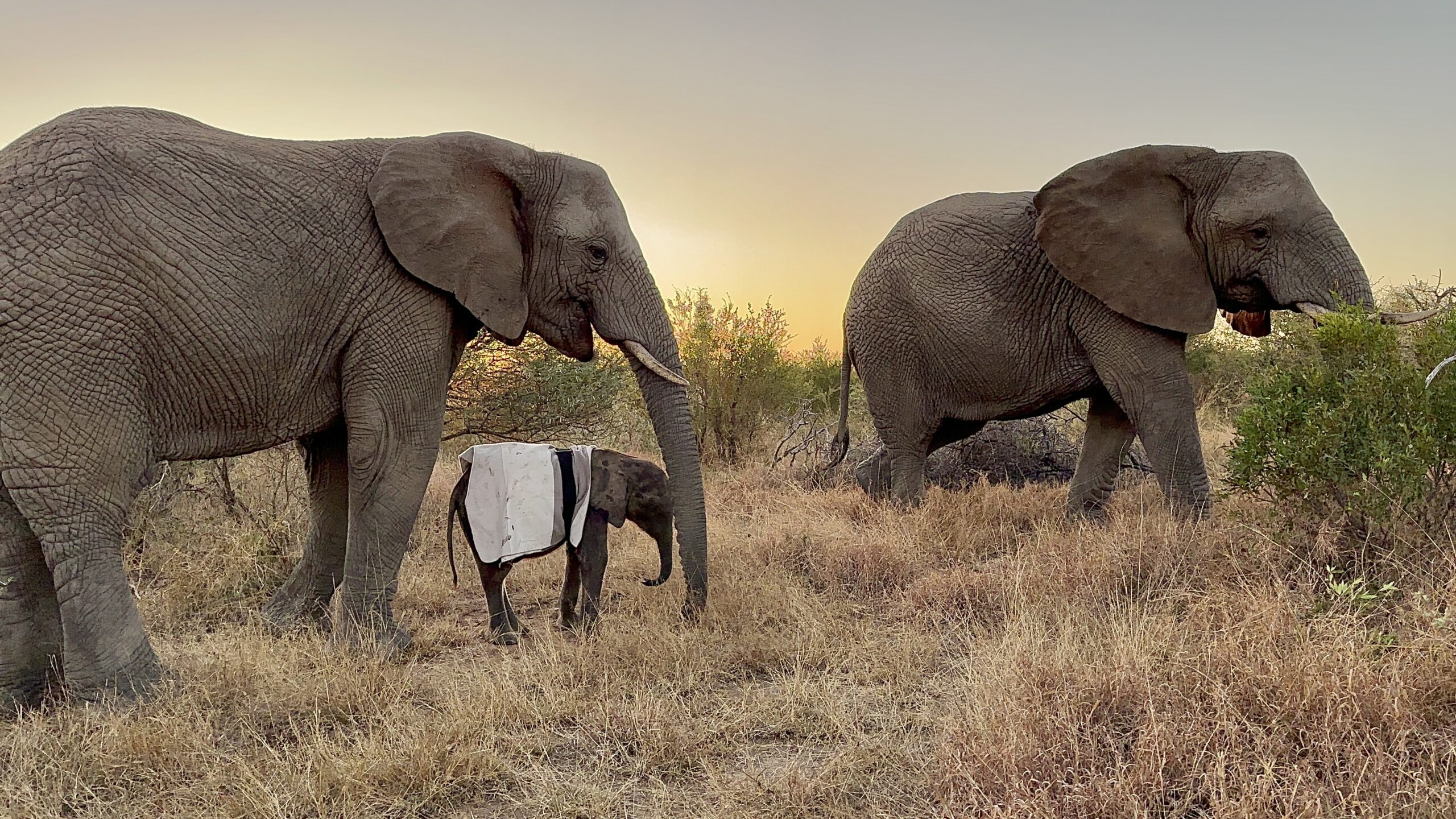It all starts with our elephant research in Africa. To increase our orphans’ chances of survival, wellbeing and successful integration into their new herd, we need to understand and consequently innovate more. Thus, in collaboration with the University of Pretoria and the University of Witwatersrand, we work with nature conservation and environmental science students to conduct valuable field research.

Elephant Ethology
It gives us great joy to be able to assist young students with their dreams to contribute to the field of elephant research, and to benefit from the knowledge they are able to share as a result.
We recently worked with University of the Witwatersrand student, Chloe Caister, who researched a special facet of elephant life – personality – for her Master’s Degree thesis. Chloe delved into the science behind whether elephants have personalities. To do so, she observed each member of our elephant herd’s behaviour and recorded her findings using certain protocols. Once a profile was created for each elephant, she conducted novelty experiments, exposing the individual elephants to novelty stimuli to record their variation.
This project studied the behaviour of our Jabulani herd, due to their unique set-up as rescued elephants. Through behavioural experiments, she could determine their personality types and how these affect interpersonal dynamics within the herd. The Jabulani herd is well known for its acceptance of orphaned elephant calves. This makes them an integral part of elephant conservation in Southern Africa. By understanding their individual personalities and needs, we can cater our care to best suit them as individuals and continue to enhance their quality of life. Hopefully we can apply this study to other animals, to provide quality husbandry for rescued animals.
HERD Trust also took part in a study with Elephants Alive: A Phased Approach to Increase Human Tolerance in Elephant Corridors to Link Protected Areas in Southern Mozambique (Published: 9 January 2023), looking into elephant behaviour and “Moving from Conflict to Coexistence with People”. Click here to read more >

Elephant Dung
Ongoing studies into elephant dung enable us to determine how diet affects the rescued elephants. This way, we can monitor the effects of fibre levels in elephants’ diet and how dietary fluctuations influence stress.
We assisted in a study of the impact of feed management on the glucocorticoid concentration of semi-captive elephants, with Marko Reynders, a student at the University of Pretoria, doing a Master’s Degree in animal production and quality. Marko tested the stress levels in the elephants and took feed samples of the most common trees in the area and the five most common grass species. He also tested the fibre content of what the elephants eat – to find correlations between this and stress levels. The goal is to help us minimise any stress on the animals.
By analysing dung and urine glucocorticoid levels with Dr André Ganswindt, Director of the Faculty of Natural and Agricultural Sciences Mammal Research Institute (University of Pretoria), we can successfully measure the stress levels experienced by our elephants.

Daily Operational Research and Data Capturing
Our daily operational research and data capturing allow us to develop ethical and responsible industry standards as we, South Africa’s first dedicated elephant orphanage, explore new ground.
Our partnership with wildlife veterinarians and other professionals qualifies us as a trailblazer in our field. We continually develop the best practice guidelines for sustainable, long-term orphaned elephant rehabilitation and reintegration.

Notable Experience
The rehabilitation and reintegration of a rare albino calf (orphaned in January 2020 due to snaring) have allowed us to build a substantial body of research into albino elephants and how their condition affects the ageing process in the wild.

Donate to our research
Elephant Research in Africa Empowers Our Initiatives
Without research, we will go about our initiatives blindly. That’s why it forms such a big part of what we do at HERD. Your donations empower us to do better each day, painting a brighter future for our gentle giants and their future as a species.

Discover other projects
Help Save Our Vulnerable Gentle Giants
We rely on incredible people like you to keep us going. Every cent counts, and no contribution is too small. HERD relies on public funding to cover the operational costs to care for and support elephant orphans and the rescued herd, so we really appreciate your support.
Elephant Tales Blog
Want to hear the latest and greatest stories about what the elephants are up to? No two days are the same, and they always amaze us with their distinctive personalities and acceptance of one another. Follow us this way for all the latest stories of what’s happening at HERD.



